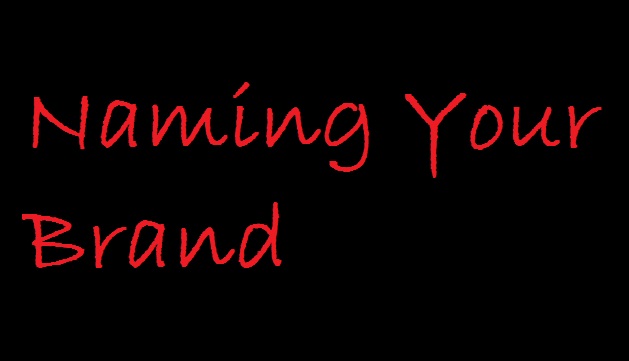Explore some tips and tricks for selling eBooks successfully.
Embracing the digital revolution, a growing number of authors and publishers are turning to eBooks as a means to convey their ideas, stories, and expertise. Whether your interest in eBook development stems from a desire to share your knowledge with the world, or you’re eyeing the economic benefits of this booming industry, this comprehensive guide will equip you with the necessary skills and understanding. From the fundamental concepts of crafting an engaging eBook; identifying your target audience and fine-tuning your content, to the tricks of maximising your eBook’s visibility and profitability; the right pricing, platforms, and marketing strategies. We will also delve into the often-overlooked legal intricacies of eBook selling, ensuring you’re prepared to navigate through copyright laws and licensing agreements.
Basics of eBooks creation
Understanding The Audience
Before you start creating your eBook, first take the time to understand your target audience. You need to recognize what their interests are, what type of content they engage with, and what problems they are trying to solve. By understanding these factors about your audience, you are able to create a book that piques their interest and appeals to their needs.
Choosing the Right Content
Once you understand your audience, the next step is selecting the right content. This involves researching popular topics within your chosen niche or industry and determining what topics or themes your potential readers are interested in. You need to ensure the content you are considering aligns with their interests and provides valuable information or insight.
Effective Writing Techniques
Creating an eBook is not just about compiling information, it’s also about presenting that information in a readable and engaging way. Use clear, concise language and make sure your writing is free of grammatical and spelling errors.
Storytelling can be an effective strategy to keep your readers hooked. Incorporating anecdotes, case studies, or experiences into your eBook could make it more relatable and engaging. Organise your content with headings, bullet points, and small paragraphs to make it easy for your readers to digest.
Designing Your eBook Experience
The next influencing factor in the creation of your eBook is its design. Simple and clean designs are often the most effective. You should also consider the use of images or graphics to visually explain or emphasise certain points within your book.
Finalising and Proofreading
Before making your eBook available for sale, take the time to proofread its content and check its formatting. Error-free and properly-formatted eBooks not only convey professionalism but are also often more trusted by readers.
Marketing Your eBook
Effective marketing is a key part of selling eBooks. Make sure to use multiple platforms such as social media, blogs, and email newsletters for promoting your eBook. Assets like captivating book covers, enticing descriptions, and positive reviews could also be beneficial in attracting potential buyers.
Finally, remember that creating an eBook is a continuous learning process. There will always be room for improvement and opportunities to create more engaging and valuable content for your target audience. An effective approach is to gather feedback from your readers and apply it to your future eBooks.

Prices and Platforms
Setting the Right Price for Your eBook
The first step in successfully selling eBooks is setting a price that reflects its value and appeals to customers. This task involves a delicate balance between being too expensive, which could deter potential buyers, and being too cheap, which may make your eBook appear low quality. Here are a few key considerations:
- Research Your Genre: Different genres can command different prices. An eBook in a niche industry may call for a higher price tag, while a romance novel may need to be priced competitively with others in the genre.
- Length and Quality: The length and quality of your eBook can also influence the price. A longer, more in-depth eBook can command a higher price than a shorter, less comprehensive one.
- Market Demand: The success of other similar eBooks can also inform your pricing. If they are selling for a higher price and still finding success, you can set a more substantial price.
Choosing the Right Platform for Your eBook
When selling eBooks, the platform you choose is crucial for reaching your target audience. There are numerous platforms available, but some of the most significant ones include:
- Amazon Kindle: Amazon is the most significant marketplace for eBooks. The royalty rate is 70% for books priced between $2.99 and $9.99 and 35% for books outside this range.
- Apple iBooks: Apple’s platform is also popular and allows authors to keep 70% of the book’s sales price.
- Barnes & Noble Nook: Barnes & Noble offers a 65% royalty for eBooks priced at $2.99 to $9.99. For eBooks priced at $0.99 to $2.98 or $10.00 and above, the royalty is 40%.
- Smashwords: This platform is an eBook distributor that can distribute your eBooks on multiple platforms, saving you the time and effort of uploading your book on multiple platforms.
Understanding eBook Distributors and ISBN
eBook distributors can be an effective way to make your book available on multiple platforms. They often require an ISBN, an International Standard Book Number, used globally for book identification. Even though many platforms like Amazon don’t require ISBNs for eBooks, having one can give your book more professionalism and makes it easier to distribute across multiple platforms.
Conclusion
Selling eBooks can be a lucrative venture if conducted correctly. Setting an appealing price is critical, as is selecting the right platform to reach your intended audience. Understanding the role of eBook Distributors and the importance of ISBNs can also contribute to your success. With this knowledge, you are well on your way to becoming a successful eBook seller.

Marketing strategies for eBooks
Learn Marketing Strategies for eBooks
Let’s dive headfirst into the pool of knowledge about eBook marketing strategies. Whether you’ve authored a graphic novel, a self-help handbook, a poetry collection, or a thrilling suspense novel, these techniques will help you reach your target audience effectively.
A Dedicated Website or Blog
Building a dedicated website or a blog for your eBook is a crucial step. It is a personalized platform where you can portray your eBook in the best light. Use this portal to provide comprehensive information, including compelling book descriptions, author biography, and an insight into the content. Be sure to include a secure payment gateway or a direct link to where your eBook can be purchased. Remember to update this platform regularly with fresh content to keep your audience engaged.
Leveraging Social Media Marketing
Just like most industries today, book marketing is also going digital, which is why promoting your eBook on various social media platforms is an efficient way to reach potential readers. Facebook, Twitter, Instagram, Pinterest, Snapchat, TikTok, LinkedIn – the possibilities are countless! Create profiles on these platforms under your author name to maintain a uniform brand identity. Share excerpts, book reviews, cover art, or anything that will pique the interest of potential readers. Engage with your audience, answer their queries, and cultivate an online presence. Schmoozing in the virtual world can dramatically uplift your eBook sales.
Email Newsletters
Email newsletters are another effective marketing strategy. Set up an opt-in form on your website or blog where interested users can sign up to receive regular updates about your eBook. You can then send consistent newsletters to this email list talking about your eBook, providing sneak peeks, or offering special purchase discounts. Remember, the key is ensuring your newsletters are engaging and capture the attention of the receiver right from the subject line.
The Power of Reviews and Ratings
In today’s digital world, prospective buyers heavily rely on reviews and ratings before making a purchase decision. Positive reviews and high ratings for your eBook can significantly boost your eBook sales. There are two effective ways to gather reviews: (a) Offering free eBook copies to readers in exchange for a review; (b) Trial reads, where you allow prospective buyers to read a couple of chapters free and leave a review if they want.
Reviews can build trust and credibility, and positively influence purchase decisions. But remember, transparency is key – avoid soliciting paid or fake reviews. Any misleading tactics can harm your brand credibility in the long run.
The path to successful eBook sales involves understanding the core marketing strategies and tweaking them to fit your unique requirements. It’s time to apply what you’ve learned and start selling. With careful planning, creative execution, and patience, you’ll see those sales numbers rise.

Legal Considerations
Understanding Copyright Laws
As a seller of ebooks, one of the first legal considerations you must address is understanding and complying with copyright laws. Essentially, a copyright entitles the rightful owner to publish and distribute their work, and anyone else intending to use it must first secure the owner’s permission. Copyright violations can result in legal battles and substantial fines. Before selling any ebook, make sure it is either your original work, or you have obtained the rights to sell it from the rightful owner.
Fair Use and Licensing
The concept of “fair use” allows the use of excerpts from a copyrighted work without asking permission under certain circumstances that include research, criticism or commentary, and news reporting. However, it’s important to remember that the rules of fair use are not black and white, hence quoting large portions of the work or using it for commercial purposes often requires explicit permission, which is a process called licensing. If you’re planning to include quotes or other third-party content in your ebook, you might need a license for it.
Securing Permissions for Third-Party Content
If an ebook you want to sell contains third-party content, such as images, charts, or substantial quotes, you likely will need to obtain permission from the copyright owner. Be prepared to pay a fee, though some copyright owners may not require it.
Start the process by identifying the copyright owner, which could be the author, their publisher, or a company that bought the rights. Next, send a formal request describing how and why you want to use the material, including details like the expected price of your ebook and your proposed payment for using their work. You must keep a record of all interactions in case you face legal issues later.
Follow-Up Requisites
Once you have secured all necessary permissions, you should make sure that every ebook you sell includes proper attributions to the original authors or copyright owners of any third-party content included within. Depending on the specific licensing agreement, there might be particular ways in which they would like to be acknowledged.
Reconsider Your Options
If gaining permission is either too expensive or time-consuming, consider using public domain materials, creating your own content, or using content available under Creative Commons licenses.
If all things get complicated, it’s wiser to seek a legal expert’s advice. This investment is vital as the consequences of copyright infringement can be far more costly.
Knowledge and compliance of these legal aspects not only protects your ebook business but also upholds your reputation as a seller who respects the rights of fellow authors and creators. Selling ebooks can be a lucrative business venture, but it’s crucial that it be built on ethical practices and legal foundations.

Having explored the exciting universe of eBook creation, distribution, marketing, and legalities, we believe you are now better prepared to embark on, or enhance, your eBook journey. The knowledge gained herein will empower you to create compelling content, strategically price and place it on the market, promote it effectively, and all while remaining within the bounds of copyright laws. True success in the eBook industry isn’t solely about having a great idea but mastering the art and science of transforming that idea into a well-crafted, well-distributed, and well-received digital product. Welcome to the dynamic world of eBook selling, we trust you are ready to make your mark!



